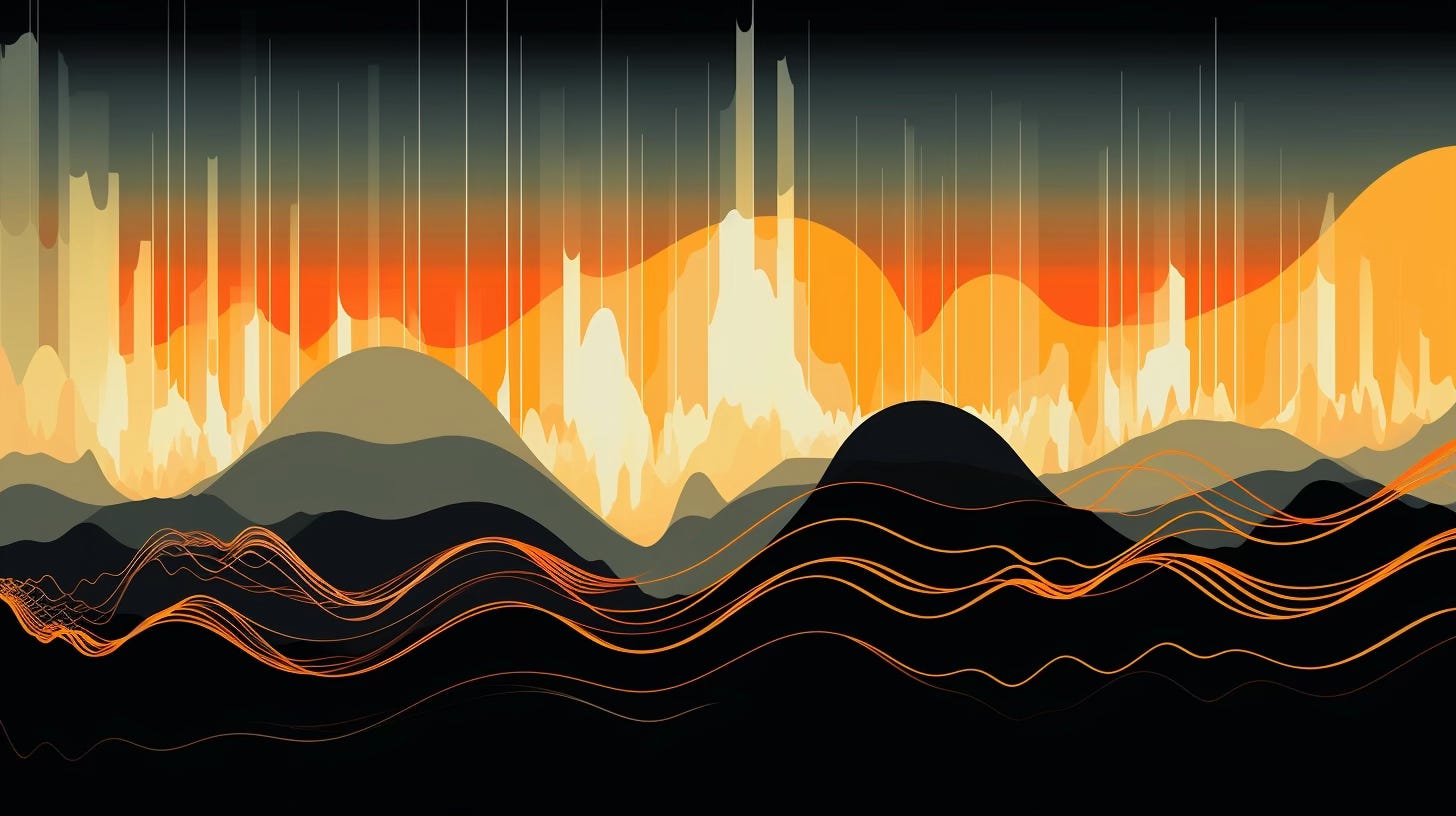This is part of my “Art of Noticing” series, in which I learn, find, or discover the things around me that usually go unnoticed and turn them into an endless source of creative inspiration.
Today, a friend fooled me into thinking an AI voice was his own. It made me think that maybe AI can be more useful than I figured.
The other day, my friend Curt texted me a link for a presentation he’d recorded for a client and asked me to check if the sound seemed okay. He said he’d turned his office into a studio. I do podcasts; he figured I’d be a good person to ask about audio.
When I said it sounded great, he revealed the punchline. He didn’t want me to check his studio sound. He wanted to see if I’d know that the voice wasn’t actually his, but was instead his AI mimic. (I didn’t know. Asshole totally fooled me.)
I’m not anti AI. I used to be, but I’m not anymore. Look around this site and you’ll see AI images everywhere. I’ve used AI to help solve problems and to brainstorm. But it just keeps impressing me, and “possibility” keeps eclipsing that whole “it’s going to take over the world” thing.
Whether you’re into AI or not, it’s here, and writers and other creatives are using it. More and more, I’m seeing what it can do, and deciding to roll with the punches.
Here's how this "noticing" can influence my stories and art:
Redefining Audiobook Narration
The use of AI voices in audiobooks could revolutionize how we experience stories. I’ve already heard Joanna Penn talking about using it to switch between a human narrator and a different voice, because different people like different reading voices.
AI-generated voices offer consistency, versatility, and maybe even emotional depth, potentially matching or even surpassing human narration — and at the least, allowing people with limited budgets to give audio a try. The technology opens up possibilities for more immersive and varied audio experiences for listeners, as well as broader scope for writers.
Incorporating AI voices also allows for flexibility in audiobook production. Different characters can be voiced distinctly, like we originally did with The Beam before it became too expensive and unwieldy. Might be a great next step, now made feasible.
Different Characterization in Podcasts and Spoken Stories
In podcasts and audio dramas, AI voices can give us options for unique character voices, expanding options that might otherwise be limited in human actors. You could even create voices for non-human characters, or for getting some specific vocal qualities that are hard to do naturally.
The integration of AI voice technology for audio-curious authors might be a big shift in how narratives are handled in audio. As AI continues to evolve, embracing its potential can push the boundaries of the usual narrative formats.
Until robots take over the world, anyway.
Want to learn on the go?
Reading these posts is only one way to get these lessons. Every post here has a companion episode of my 10-minute, multi-times-weekly podcast, The Art of Noticing.
WANT MORE?
Members get extra posts like this one, bonus podcast episodes, and more every week … all for the price of a fancy coffee. Learn about membership here.



I started using ai narration for the short stories I post here on Substack every other Monday, which also feed to a podcast on Spotify, etc. I've used narrators on other projects in the past, and I still think it's better, but this way I'm creating audio versions of stories I otherwise wouldn't be. It makes my work more accessible, and hopefully opens up the audience a bit wider. This is one of those situations where it's not replacing anyone, because the alternative is that I simply wouldn't be able to afford to create an audio version of these stories. That's where I think ai really shines: making things that otherwise wouldn't exist possible.
I feel like this is very much one of those "it's not the tool, it's the user" type things. Personally, I'm not against the technology, though my opinion is that the current AI stuff that's everywhere is having more harmful impact than good on a massive scale, and there's troublesome ethical problems with the way those AI tools have been put together and rolled out. It's why I loathe the term "AI art" because the current AI generators don't MAKE anything, they've been fed untold amounts of data that they then spit out like a collage (with no original additions) according to set patterns they've been taught. AI prompter is more accurate, as far as I'm concerned. And I don't have an issue with people who enjoy playing with those generators as a fun thing to do on the level of making/sharing memes or doing silly quizzes, but I think it's not right for people to claim that they've "made art" and try to sell it when all they did was type in some key words into a program that then spits out a (sometimes) unrecognisable smash up of millions of artists' works that have been scraped from the Internet without consent (and often with explicit requests to not take displayed art beyond saving a copy to enjoy for personal viewing pleasure).
Here's an article about the current state of the state of AI stuff in recent news that might be interesting: https://www.infinitescroll.us/p/weekly-scroll-the-internets-shower?r=2cx6re&utm_campaign=post&utm_medium=web